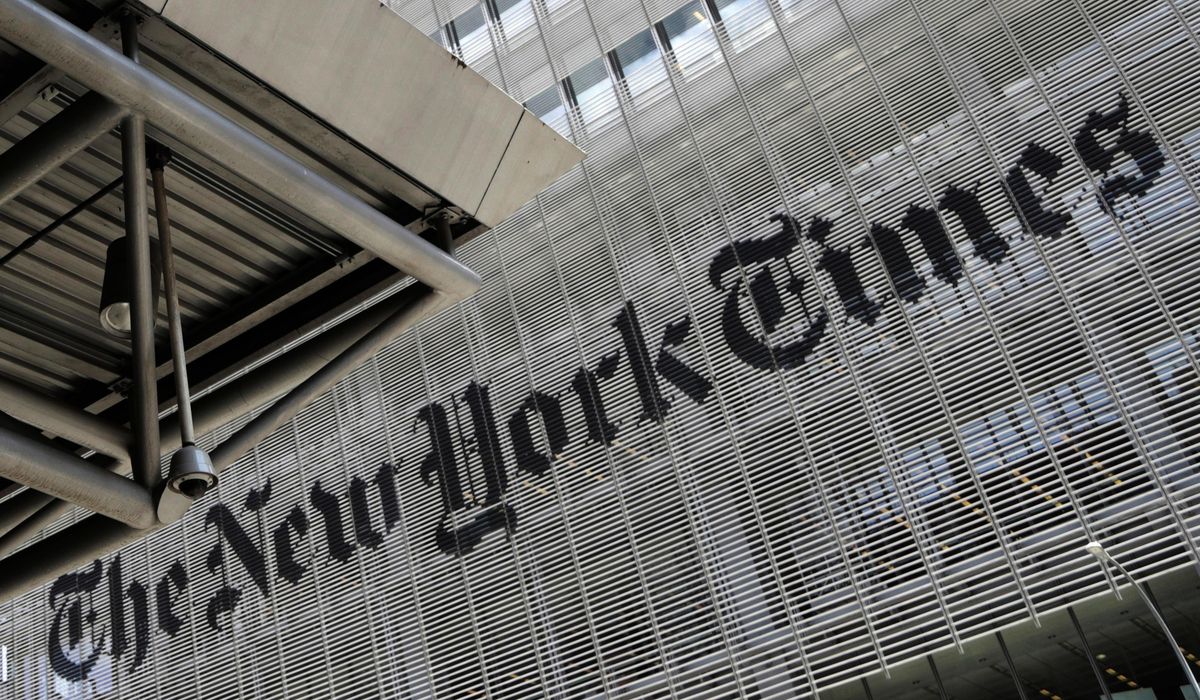


The New York Times on Friday discredited newly declassified documents tying liberal donor George Soros and Hillary Clinton to the false narrative that President Trump’s 2016 campaign colluded with the Russians to win the election.
It’s all Russian disinformation, reporters for the paper wrote.
The declassified documents “show the opposite” of Mrs. Clinton working to undermine Mr. Trump, they wrote, and “a key piece of supposed evidence for the claim that Mrs. Clinton approved a plan to tie Mr. Trump to Russia is not credible.”
The New York Times reported extensively during Mr. Trump’s first term on the politically charged and unverified narrative that Mr. Trump colluded with the Russians to win the White House.
The Washington Times reached out to the newspaper for comment.
Previously, the paper similarly discredited reports on the sordid and politically damaging contents of Hunter Biden’s laptop computer that were reported by the New York Post weeks before the 2020 presidential election. The laptop and its contents were real, but a New York Times headline on Oct. 18, 2020, covered the story with this headline about The Post’s scoop: “Some reporters withheld their bylines and questioned the credibility of an article that made the tabloid’s front page on Wednesday.”
SEE ALSO: FBI knew of Hillary Clinton-George Soros plan to spread Trump-Russia hoax, new docs reveal
On Friday, The New York Times downplayed the newly declassified emails Russians hacked from Mr. Soros’ left-wing Open Society Foundation and authored by an employee named Leonard Benardo that laid out plans to spread the Russia collusion hoax to “leading U.S. publications,” via entities connected to the FBI.
The newly revealed documents appear to show Hillary Clinton’s campaign was enthusiastically in on the plot, seeing it as a way to take the attention off Mrs. Clinton’s illegal email server and the thousands of government emails she secretly deleted while serving as secretary of state.
A Benardo email relayed that Mrs. Clinton “approved” of her campaign adviser’s “idea about Trump and Russian hackers hampering U.S. elections.”
He explained, “That should distract people from her own missing emails.”
The New York Times said they believe the emails never existed. Special Counsel John Durham’s 2023 report on the origins of the FBI’s probe in the Trump-Russia collusion allegations indicated, at least to them, that Mr. Durham determined those emails “were probably manufactured” by Russians.
The paper cited as evidence the statements by Mr. Benardo and others who said they did not write the damning emails, as well as a line written by Mr. Durham in his report criticizing the FBI’s basis for launching a secret investigation into Mr. Trump’s 2016 campaign.
Mr. Durham wrote that agents should have been more careful in launching the probe, “Whether or not the Clinton Plan intelligence was based on reliable or unreliable information, or was ultimately true or false.”
An Open Society Foundations spokesperson said in a statement to The Washington Times that “the claim that the Open Society Foundations helped orchestrate an FBI investigation is an outrageous falsehood … grounded in malicious disinformation traced to Russian intelligence.”
• Susan Ferrechio can be reached at sferrechio@washingtontimes.com.
